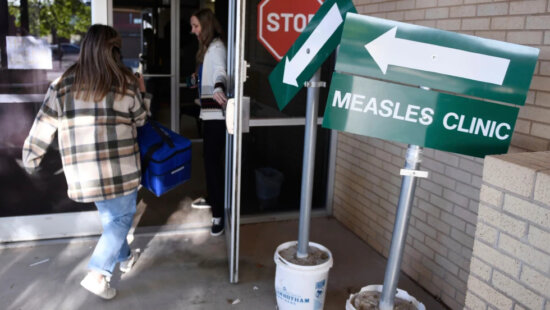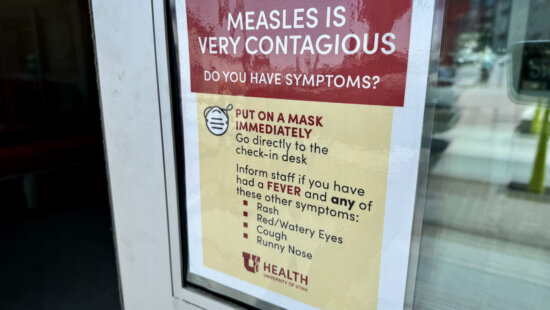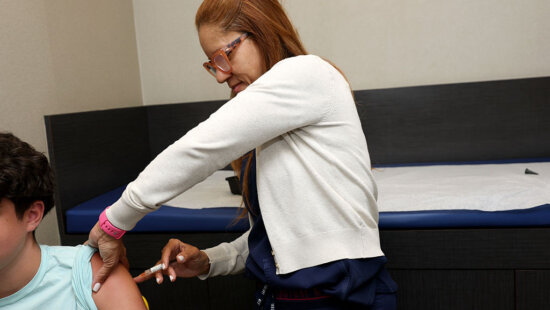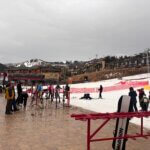Health
Utah confirms 3 measles cases amid growing national outbreak

A measles sign is seen at the Texas Tech University Health Sciences Center, Feb. 25, 2025, in Lubbock, Texas. Photo: AP Photo/Julio Cortez
State health officials urge vaccination as potential exposures identified in Orem
PARK CITY, Utah — The Utah Department of Health and Human Services (DHHS) has confirmed three cases of measles in the state as part of a growing national outbreak. Health officials are urging residents to be vigilant, monitor for symptoms, and ensure they are up-to-date on their measles vaccinations.
Two confirmed exposure locations have been identified in Orem, according to the state website.
- Parkway Health Center, 145 W 1300 S, on June 13 between 12:30 p.m. and 3:00 p.m.
- Timpanogos Regional ER, 750 W 800 N, on June 14 between 2:00 p.m. and 9:00 p.m.
Anyone who was at these locations during the specified times is advised to monitor for measles-like symptoms — including high fever, cough, runny nose, red eyes, and rash — and to complete a risk assessment survey provided by DHHS available here in English and Spanish.
As of June 24 there have been a total of 1,227 confirmed measles cases were reported by 37 states nation-wide. 66% of those cases are in people under the age of 19, 95% of whom are unvaccinated.
Recent Travel-Linked Cases
The first reported case in Utah was a traveler passing through the state on May 23. All individuals potentially exposed during that time have since been notified. A second infected traveler was in southwestern Utah on May 26 and 27, visiting public places while contagious. Local and state health officials are continuing efforts to notify and monitor individuals who may have been exposed.
Though community spread from these cases has not been confirmed, DHHS warns that more measles cases tied to national travel are likely, and Utah will continue to update the public if further exposures occur.
Vaccination Guidance
While Utah is not currently considered a high-risk area for widespread measles transmission, health officials are reinforcing the importance of the MMR vaccine (measles, mumps, rubella):
- Infants (6–11 months): Should receive an early dose of MMR if traveling internationally or to outbreak areas within the U.S. These children will still need two additional doses at the usual ages (12–15 months and 4–6 years).
- Children over 1 year: Should have at least one dose of the MMR vaccine. The second dose can be given earlier than age 4 if desired, but it’s not currently recommended unless the child is traveling to a high-risk area.
- Adults born after 1957: Should have two doses of MMR unless medically exempt.
- Those vaccinated between 1963 and 1967: Should be re-vaccinated, as the earlier version of the measles vaccine from that period is no longer considered effective.
“We recommend everyone make sure you are protected against measles,” DHHS stated, noting that even one dose of MMR provides strong protection.
When to Seek Care
If symptoms appear, health officials ask residents to avoid contact with others and call a healthcare provider before visiting in person to prevent further spread.
For the latest updates, risk assessments, and exposure notifications, visit health.utah.gov.


















